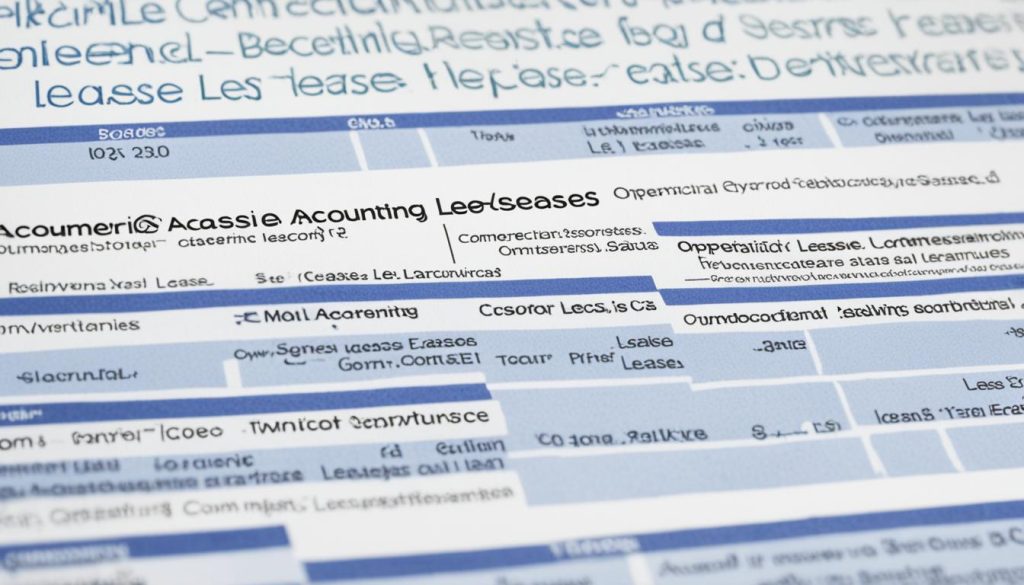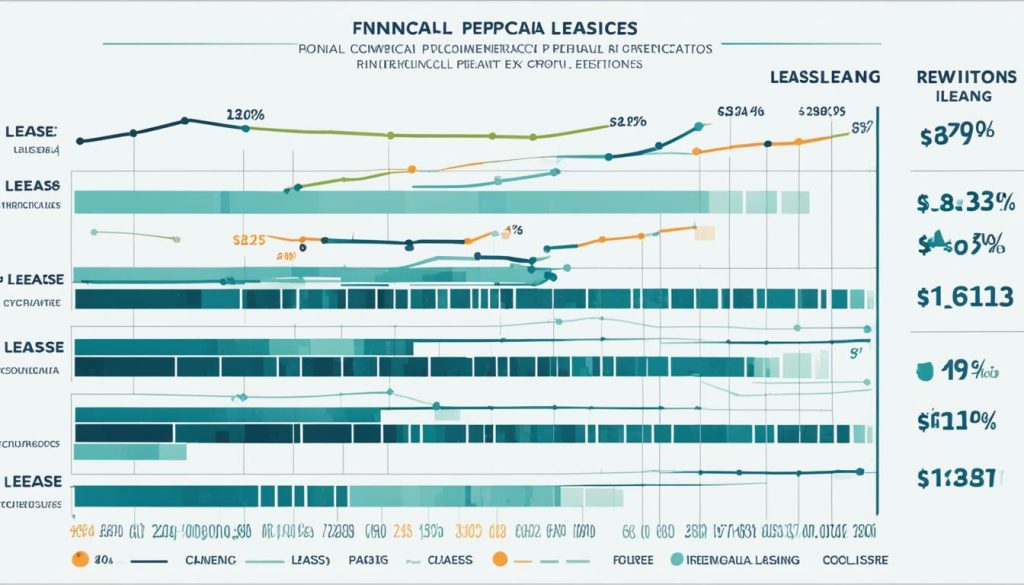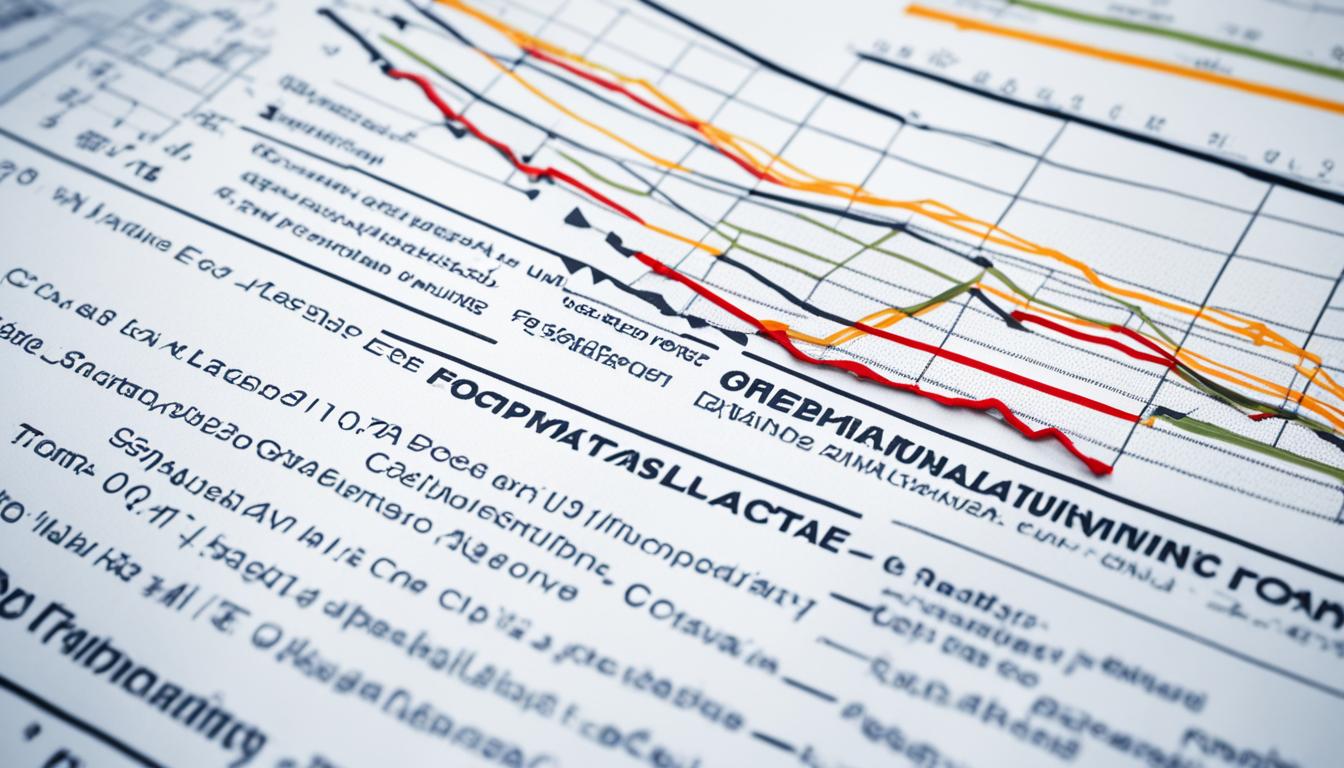Navigating Real Estate and Understanding the Intricacies of Commercial Lease Accounting
Welcome to our article on commercial real estate lease accounting and the importance of understanding lease accounting standards for commercial properties. Managing investment properties involves a wide range of financial responsibilities, and lease accounting plays a crucial role in ensuring accurate reporting and optimizing returns. Whether you are a real estate investor, a property manager, or an accountant in the industry, understanding the intricacies of commercial lease accounting is essential for success.
Commercial real estate lease accounting involves monitoring tenant leases, tracking expenses, and adhering to accounting standards for accurate financial reporting. It also plays a significant role in evaluating investment performance and determining the profitability of commercial properties. With the implementation of lease accounting standards like ASC 842, it is crucial to stay updated on the latest regulations and practices.
Key Takeaways:
- Commercial lease accounting is essential for accurate financial reporting and optimizing returns in investment properties.
- Understanding lease accounting standards, such as ASC 842, is crucial for compliance and evaluation of investment performance.
- Tenant leases play a central role in commercial real estate accounting, including rent amounts, concessions, and common area maintenance reimbursements.
- Different lease types, such as operating leases and finance leases, have specific accounting treatment and recognition on financial statements.
- Accurate revenue recognition and reporting requirements are vital aspects of commercial lease accounting, considering variable rents and lease incentives.
The Importance of Tenant Leases in Commercial Real Estate Accounting
Tenant leases play a critical role in the accounting process for commercial real estate. They encompass a variety of lease terms such as concessions, monthly rent amounts, security deposits, and common area maintenance reimbursements. Real estate accountants must carefully navigate these lease terms to ensure accurate revenue recognition and compliance with accounting standards.
“Tenant leases are the foundation of commercial real estate accounting, providing crucial details that guide financial management and reporting.”
In commercial real estate accounting, tenant leases serve as the basis for determining rental income and expenses. They provide a comprehensive overview of the financial commitments and obligations between landlords and tenants. Let’s take a closer look at the key components of tenant leases that real estate accountants must consider:
1. Concessions
Tenant leases often include concessions, such as rent-free periods or allowances for tenant improvements. These concessions impact the revenue recognition and financial performance of the property. Real estate accountants must assess the fair value of these concessions and appropriately allocate them over the lease term.
2. Monthly Rent Amounts
The monthly rent amount is a crucial element of tenant leases. Real estate accountants must accurately record and track monthly rent payments to ensure proper revenue recognition. This includes accounting for any changes or adjustments in rent amounts over the lease term.
3. Security Deposits
Commercial leases typically require tenants to provide security deposits to protect against damages and unpaid rent. Real estate accountants must account for these security deposits separately and handle them in accordance with accounting standards.
4. Common Area Maintenance (CAM) Reimbursements
Many commercial leases require tenants to reimburse landlords for common area maintenance expenses, such as landscaping or building repairs. Real estate accountants must accurately track and allocate these reimbursements to the appropriate expense categories.
By effectively managing tenant leases, real estate accountants can ensure accurate financial reporting and compliance with accounting practices. It is crucial to stay updated with the latest regulations and lease accounting standards to ensure adherence to industry best practices.
Different Lease Types and Their Accounting Treatment
In commercial real estate accounting, it is important to understand the different types of leases and how they are treated in accounting. Two common types of leases are operating leases and finance leases. These lease types have specific accounting standards that must be followed to ensure accurate financial reporting.
Operating Leases
An operating lease is a lease agreement that does not transfer ownership of the property to the lessee. Instead, the lessee is granted the right to use the property for a specific period of time. Operating leases are typically short-term and do not significantly impact the lessee’s financial statements.
Accounting treatment for operating leases requires the lessee to recognize lease payments as an expense in the income statement over the lease term. The lease liability and right-of-use asset are also disclosed in the balance sheet, providing transparency regarding the lessee’s lease obligations.
Finance Leases
A finance lease, also known as a capital lease, is a lease agreement that transfers the risks and rewards of asset ownership to the lessee. Unlike operating leases, finance leases are long-term and have a significant impact on the lessee’s financial statements.
Accounting treatment for finance leases requires the lessee to recognize both the lease liability and the right-of-use asset in the balance sheet. The lease liability represents the lessee’s obligation to make lease payments, while the right-of-use asset represents the lessee’s right to use the leased property.
The lessee also recognizes interest expense on the lease liability and amortization expense on the right-of-use asset in the income statement. This results in higher expenses during the early years of the lease and lower expenses in the later years.
It is important for real estate accountants and professionals to be familiar with the accounting treatment for operating leases and finance leases to comply with lease accounting standards, such as ASC 842. By accurately accounting for lease transactions, businesses can provide transparent financial information and make informed decisions regarding their lease agreements.
| Lease Type | Accounting Treatment |
|---|---|
| Operating Lease | – Lease payments recognized as expense in the income statement – Lease liability and right-of-use asset disclosed in the balance sheet |
| Finance Lease | – Lease liability and right-of-use asset recognized in the balance sheet – Interest expense and amortization expense recognized in the income statement |

Revenue Recognition and Reporting Requirements in Commercial Lease Accounting
One of the critical aspects of commercial lease accounting is accurately recognizing rental income. Real estate accountants must carefully consider various variables, such as variable rents or lease incentives, to determine the proper timing of revenue recognition.
Additionally, reporting requirements play a crucial role in commercial lease accounting. Landlords and property owners need to fulfill their obligations by submitting comprehensive reports to relevant parties, including annual tax returns, monthly sales tax reporting, and quarterly financials sent to lenders. These reports provide a clear picture of the financial performance of the leased property and ensure compliance with accounting and tax regulations.
Meeting these reporting requirements requires attention to detail and careful record-keeping. Accurate and timely reporting not only satisfies legal obligations but also provides valuable insights into the financial health and profitability of the leased property.
“Accurate and timely reporting not only satisfies legal obligations but also provides valuable insights into the financial health and profitability of the leased property.”
To simplify the reporting process, real estate accountants often utilize accounting software specifically designed for commercial lease accounting. These tools automate various tasks, such as generating financial reports and calculating rental income, streamlining the reporting process and ensuring compliance with reporting standards.
Proper revenue recognition and adherence to reporting requirements are essential for maintaining transparency and making informed decisions regarding the financial management of leased properties.

Sample Table: Reporting Requirements in Commercial Lease Accounting
| Report | Frequency | Recipient |
|---|---|---|
| Annual Tax Returns | Annually | IRS or Tax Authorities |
| Monthly Sales Tax Reporting | Monthly | Sales Tax Authorities |
| Quarterly Financials | Quarterly | Lenders or Financial Institutions |
Monthly Financials and Annual Reporting Tasks in Commercial Lease Accounting
When it comes to commercial lease accounting, staying on top of monthly financials and annual reporting tasks is crucial. These tasks provide valuable insights into the financial health of your investment property and ensure compliance with accounting standards. Let’s take a closer look at what’s involved in managing monthly financials and annual reporting in the world of commercial lease accounting.
Monthly Financials
Monthly financials in commercial lease accounting involve assembling a comprehensive package that includes various financial statements. These statements provide a holistic view of your property’s financial performance and help you make informed decisions. The key components of monthly financials include:
- Balance Sheets: These documents provide a snapshot of your property’s assets, liabilities, and owner’s equity. They give you a clear picture of your property’s financial standing and help you track its value over time.
- Profit and Loss Statements: Also known as income statements, profit and loss statements show your property’s revenues, expenses, and net income or loss. They reveal how much profit your property is generating and identify areas where you can reduce costs or increase revenue.
- Accounts Receivable Statements: Accounts receivable statements detail the outstanding rent payments from your tenants. They help you keep track of tenant payment statuses and ensure timely rent collection.
By regularly reviewing these financial statements, you can identify any discrepancies, monitor the financial health of your property, and make informed decisions to optimize its performance.
Annual Reporting Tasks
In addition to monthly financials, annual reporting is a critical task in commercial lease accounting. It involves compiling and submitting various reports to meet regulatory and compliance requirements. Some of the key annual reporting tasks include:
- Annual Financial Statements: The annual financial statements summarize your property’s financial activities for the entire fiscal year. They provide a comprehensive overview of your property’s financial position and are often required for tax purposes and presentations to stakeholders.
- Tax Returns: Commercial real estate owners must file annual tax returns based on their property’s financial performance. These returns require accurate reporting of income, expenses, and deductions related to the property.
- Annual Budgets: Creating an annual budget helps you plan for the upcoming year and allocate resources effectively. It allows you to set financial goals, track revenue, and forecast expenses for your property.
By completing these annual reporting tasks, you ensure transparency, maintain compliance with accounting standards, and provide stakeholders with accurate and reliable financial information.
Staying on top of monthly financials and annual reporting tasks is key to effectively managing your commercial lease accounting. These tasks provide valuable insights into your property’s financial performance and help you make informed decisions. By understanding the intricacies of your property’s financials, you can optimize its performance and ensure compliance with accounting standards.
Ten Tips for Successful Commercial Real Estate Leasing
Leasing commercial real estate can be an exciting venture, but it’s important to approach it strategically to ensure a smooth and successful experience. Here are ten essential tips to keep in mind when engaging in commercial real estate leasing:
- Clearly Define Your Needs: Before starting your search for commercial real estate, clearly define your needs and understand the specific requirements for your business.
- Conduct Thorough Property Research: Take the time to research the properties you are considering, including location, amenities, surrounding businesses, and market trends.
- Negotiate Lease Terms: Negotiate lease terms that align with your long-term goals and protect your interests. Seek legal advice if necessary.
- Conduct Due Diligence: Thoroughly evaluate the property to ensure there are no hidden issues or potential problems that may impact your business operations.
- Prepare for Move-in: Create a detailed plan for moving into the new space, including logistics, equipment setup, and any necessary renovations or improvements.
- Maintain Communication: Establish and maintain open lines of communication with the landlord or property management to address any concerns or issues that may arise during the lease term.
- Understand Lease Agreement Terms: Carefully review and understand all terms and conditions outlined in the lease agreement, including rent escalation clauses, maintenance responsibilities, and lease renewal options.
- Consider Hiring a Real Estate Broker: Engage the services of a reputable real estate broker who specializes in commercial leasing to provide expert guidance and support throughout the process.
- Seek Professional Advice: Consult with a commercial real estate attorney or accountant to ensure compliance with legal and financial obligations specific to your lease agreement.
- Plan for the Future: Consider your long-term business objectives and growth plans when selecting a commercial space, ensuring it has the potential to accommodate future expansion or changes in your business needs.
Remember, successful commercial real estate leasing requires careful consideration, thorough research, and strategic decision-making. By following these ten tips, you can navigate the leasing process with confidence, setting your business up for success.
Pros and Cons of Commercial Real Estate Leasing
| Pros | Cons |
|---|---|
| Opportunity for long-term appreciation | Financial commitment and fixed expenses |
| Control over space customization | Responsibility for maintenance and repairs |
| Economic advantages such as tax benefits and potential rental income | Potential limitations on space flexibility and relocation |
| Enhanced business visibility and brand recognition | Risk of market volatility and economic downturns |
| Ability to build equity and asset value | Potential restrictions on modifications and lease terms |
Understanding the pros and cons of commercial real estate leasing empowers you to make informed decisions that align with your business goals and financial capabilities.
Conclusion
Commercial lease accounting is a critical aspect of managing investment properties in the real estate industry. The complexities involved in tenant leases, lease types, revenue recognition, reporting requirements, and financials can be overwhelming. However, by gaining a thorough understanding of these intricacies, investors can confidently navigate the world of commercial real estate leasing.
It is highly recommended to work with experienced professionals in real estate accounting when dealing with commercial lease accounting. These professionals have the knowledge and expertise to ensure compliance with accounting standards and industry best practices. They can assist in accurately tracking tenant leases, managing expenses, and optimizing financial reporting.
Having a solid grasp of commercial lease accounting not only enhances investment performance evaluation but also helps in optimizing returns. Accurate financial reporting is crucial for tax purposes, lender requirements, and investor confidence. By staying on top of financial obligations and being well-versed in lease accounting standards, investors can successfully manage their commercial properties and maximize their potential.
FAQ
What is commercial real estate lease accounting?
Commercial real estate lease accounting refers to the process of managing and reporting financial information related to tenant leases and expenses in commercial properties.
Why is tenant leases important in commercial real estate accounting?
Tenant leases are crucial in commercial real estate accounting because they contain important information such as monthly rent amounts, concessions, security deposits, and common area maintenance reimbursements.
What are the different lease types and their accounting treatment?
The different lease types in commercial real estate accounting include operating leases and finance leases. Each lease type has specific accounting treatment requirements as per lease accounting standards.
How is rental income recognized in commercial lease accounting?
Rental income recognition in commercial lease accounting depends on various factors such as lease incentives, variable rents, and timing of payments. Real estate accountants must accurately determine the timing of recognizing rental income.
What are the reporting requirements in commercial lease accounting?
Reporting requirements in commercial lease accounting include annual tax returns, monthly sales tax reporting, and quarterly financial statements that are sent to lenders.
What tasks are involved in monthly financials and annual reporting in commercial lease accounting?
Monthly financials in commercial lease accounting involve preparing comprehensive packages that include balance sheets, profit and loss statements, accounts receivable statements, and more. These reports provide a holistic view of assets, liabilities, income, expenses, and tenant payment statuses. Annual reporting tasks include preparing audited financial statements and tax documentation.
What are some tips for successful commercial real estate leasing?
Some tips for successful commercial real estate leasing include defining needs clearly, conducting thorough property research, negotiating lease terms, conducting due diligence, preparing for move-in, and maintaining communication with the landlord or property management.
Why is working with experienced professionals in real estate accounting recommended?
Working with experienced professionals in real estate accounting is highly recommended to ensure compliance with accounting standards and industry best practices. They can provide valuable guidance and expertise in navigating the complexities of commercial lease accounting.
